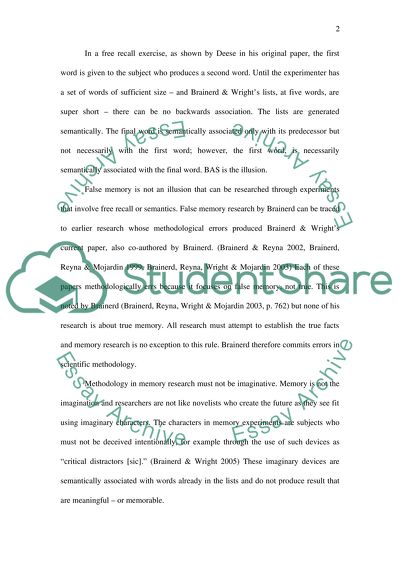The False Memory Illusion Essay Example | Topics and Well Written Essays - 750 words. Retrieved from https://studentshare.org/psychology/1529656-the-false-memory-illusion
The False Memory Illusion Essay Example | Topics and Well Written Essays - 750 Words. https://studentshare.org/psychology/1529656-the-false-memory-illusion.


